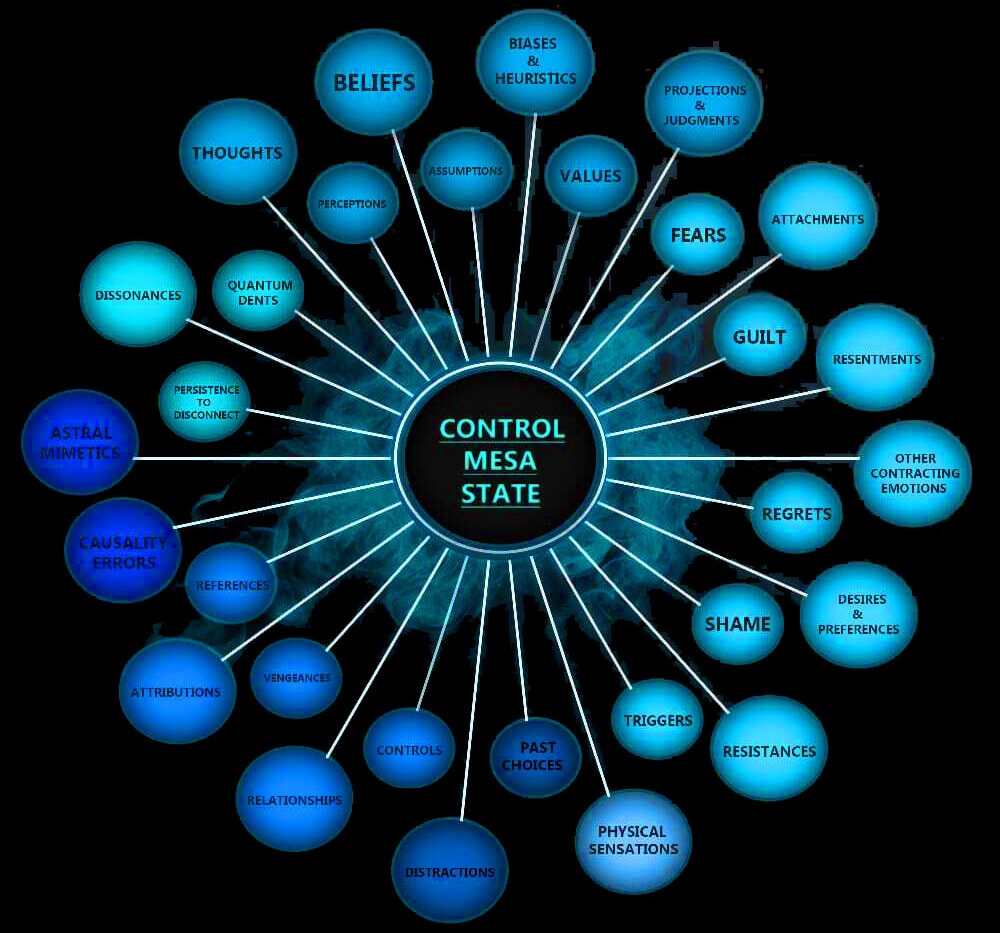What if I gave you a simple exercise that could increase your productivity by 1,000%—whether you’re a manager, leader, or entrepreneur?
Not just your personal productivity, but when you share this micro-training with your team, it will skyrocket your personal productivity and the productivity of your department and your entire company.
What if I made you that promise—would you take the time to listen to what I have to say? The exercise will be highly tactical and, therefore, undeniably practical—instantly executable. Nothing esoteric, at least not in this specific case… 🙂
A 1,000% productivity boost would lead to at least a 200% revenue increase if you play your cards right—simply by implementing this small exercise and having your entire team do it once a month. If I promised you that, would you pause everything else and listen?
Why Productivity Doesn’t Just Improve:
Every leader knows that productivity isn’t merely a matter of effort or motivation. The world is full of books, frameworks, and motivational speeches that promise miraculous results by pushing harder or mastering the perfect schedule. Yet for many, the results are minor—disappointingly so. Why?
The answer isn’t about working more efficiently or harder. The real problem lies in what you’re anchored to—mentally, emotionally, energetically, and socially.
In the MMB Model, we call them Mesa Anchors.
Mesa Anchors–The Stubborn Diversions from Productivity:
Mesa Anchors are the mental, emotional, social, and other constructs that unconsciously shape how you think, make decisions, and interact with your projects. They are not just beliefs or habits—they are persistent, multi-layered patterns that tie you to behaviors that represent inefficient ways of operating, often without you even noticing.
There are approximately 30 Mesa Anchors that fall into these 7 primary categories within the MetaMind Bend system:
- Cognitive,
- Emotional,
- Physiological,
- Behavioral,
- Relational,
- Causal,
- Energetic.
These anchors are not inherently “bad”, “wrong” or “harmful”.
If we were to simplify the explanation, leaving out esoteric aspects of their origin, we could say that they often originate from protective mechanisms or past experiences that once served a purpose. But in a dynamic, fast-paced environment, they act as invisible barriers to many desired tendencies, behaviours and outcomes, including productivity.
How Mesa Anchors Co-Influence Each Other–The Origin of Self-Sabotage:
None of the anchors exist in isolation. They form a complex web of interdependencies that shape our thoughts, emotions, and behaviors–and with that, outcomes– in ways we rarely notice. While it’s tempting to address each anchor separately—breaking a mental construct here or challenging an emotional attachment there—the human reality is far more intricate. These anchors influence and reinforce one another, creating self-sabotaging loops that are notoriously difficult to escape.
For example:
>> Cognitive and Emotional Anchors–The Cycle of Doubt and Hesitation:
Cognitive anchors represent various mental patterns, while emotional anchors stem from attachments to familiar feelings, even negative ones. When these two converge, they create a cycle where a fixed belief triggers a familiar emotion, which in turn reinforces the belief. For example:
- A belief that “delegating tasks always leads to mistakes” (cognitive anchor) triggers anxiety (emotional anchor), which then confirms the causality error etc., making delegation feel inherently risky.
- A perception of being constantly overwhelmed (emotional anchor) perpetuates feelings of inadequacy or guilt (another emotional anchor), which leads to multiple forms of dissonance (energetic and cognitive anchor) makes it even harder to break the cycle and adopt more efficient practices.
>> Emotional and Relational Anchors–Fear of Judgment and Approval Seeking:
Relational anchors are tied to our ways to relate to people and circumstances, often connected to our expectations and comparison, and the need for external validation. When combined with emotional anchors, they often create a pattern of overcommitment and burnout. For instance:
- A desire to meet everyone’s expectations and maintain ties of relationships (relational anchor) pairs with the fear of disappointing others (emotional anchor), leading to chronic overwork and exhaustion.
- The pressure to appear constantly productive and to maintain identity in the eyes of others (relational anchor) couples with guilt over taking breaks (emotional anchor), resulting in a relentless push that depletes energy and creativity.
>> Relational and Cognitive Anchors–Conformity and Rigid Thinking:
Social (relational) anchors often dictate what is deemed “acceptable” or “successful” within a group or professional setting. When they co-influence cognitive anchors, they form a barrier against innovation and flexibility.
- An ingrained belief that “success means constant hustle” (cognitive anchor) aligns with a culture that praises overwork (relational anchor), making it almost impossible to pause and contemplate new approaches without feeling lazy or inadequate.
- A socially driven desire to be seen as the “go-to expert” (relational anchor) enforces rigid professional standards (cognitive anchor), trapping us in outdated concepts and methods rather than adapting to new opportunities.
The Energy Drain–How Co-Influencing Anchors Sap Vitality:
The interconnected nature of these anchors doesn’t just stall progress—it actively drains mental and physical energy. Constant internal conflict between outdated beliefs and emotional resistance consumes cognitive resources, leading to mental fatigue and burnout. The persistent effort to meet social expectations while managing internal doubts leaves little room for clarity or innovation.
The Delegation Myth–Why Letting Go Feels So Difficult:
Everyone knows delegation is essential. We’ve heard it in leadership seminars and read it in countless management books. Yet most entrepreneurs struggle with it. Why? Because delegation isn’t just a matter of passing tasks down—it challenges deeply ingrained Mesa Anchors related to self perception and control.
When you hold on to tasks despite knowing it’s inefficient, it’s not because you’re stubborn or unwilling. It’s because something deeper resists the change—a sense of responsibility, fear of loss of control, or a fear that no one can do it better than you.
MMB coaching sessions break down multi-layered structures, not by forcing you to change habits but by questioning the very mindset that sustains them. Once the anchor dissolves, delegation becomes a natural extension of your leadership, not a burden.
MMB’s Approach–Un-Anchoring the Web of Interference:
Meta Mind Bend™ Model-supported executive and business coaching doesn’t just break individual anchors—it deconstructs the entire network of interdependencies. By examining how these anchors mutually reinforce each other, MMB helps untangle the mental, emotional, and social patterns that perpetuate self-sabotage, fatigue, and slow progress of the projects. The goal is not merely to eliminate one problematic thought or feeling but to neutralize the entire architecture that keeps the pattern intact.
By systematically dismantling these co-influences, MMB trains the mind into a state of clarity and effortless productivity, guiding people through learning highly focused states and an effective process of delegation, where energy is no longer wasted on internal friction and outdated paradigms and other talents get onboarded to support the projects’ fast execution.
This holistic un-anchoring is the key to sustainable, rockstar-level performance.
The Meta Mind Bend™ (MMB) Model–Redefining Personal and Team Efficiency:
The Meta Mind Bend™ (MMB) model is an innovative approach designed to identify and dismantle obstacles that are represented by the many layers of your identity.
Unlike traditional productivity frameworks that focus on surface-level efficiency hacks, MMB goes straight to the root of what holds you back as an entrepreneur, a leader, and a project manager.
MMB is based on the premise that productivity is not merely a behavioral problem but a structural one. By identifying and dissolving the nodes of anchors, MMB enables a fluid, adaptive mindset that aligns your actions with your true priorities.
MMB-assisted executive coaching sessions address the complex interplay of mental, emotional, and social factors that direct your choices and reactions. Rather than pushing against resistance, MMB dismantles the resistance itself, allowing natural, unforced behaviors that lead to productivity to emerge.
Ready to experience productivity without resistance? Order your custom Identity Gap Assessment and book your call with the MMB Catalyst, implement the exercise that we will give you and watch your and your team’s efficiency rise to a level you never thought possible.











